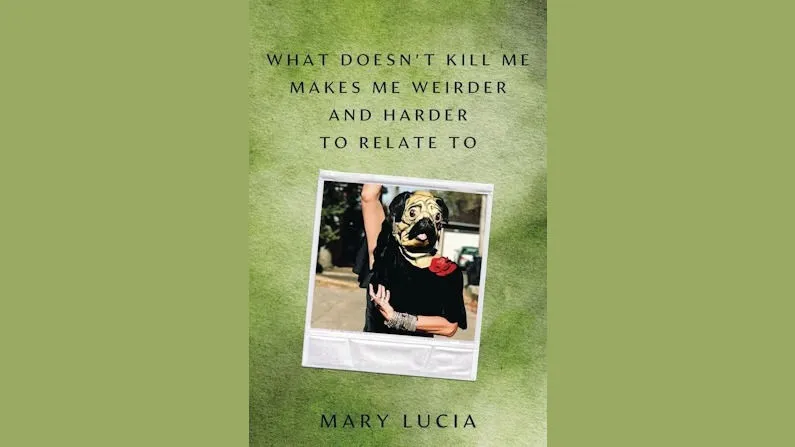
To place an obituary, please include the information from the obituary checklist below in an email to obits@pioneerpress.com. There is no option to place them through our website. Feel free to contact our obituary desk at 651-228-5263 with any questions.
General Information:
Your full name,
Address (City, State, Zip Code),
Phone number,
And an alternate phone number (if any)
Obituary Specification:
Name of Deceased,
Obituary Text,
A photo in a JPEG or PDF file is preferable, TIF and other files are accepted, we will contact you if there are any issues with the photo.
Ad Run dates
There is a discount for running more than one day, but this must be scheduled on the first run date to apply.
If a photo is used, it must be used for both days for the discount to apply, contact us for more information.
Policies:
Verification of Death:
In order to publish obituaries a name and phone number of funeral home/cremation society is required. We must contact the funeral home/cremation society handling the arrangements during their business hours to verify the death. If the body of the deceased has been donated to the University of Minnesota Anatomy Bequest Program, or a similar program, their phone number is required for verification.
Please allow enough time to contact them especially during their limited weekend hours.
A death certificate is also acceptable for this purpose but only one of these two options are necessary.
Guestbook and Outside Websites:
We are not allowed to reference other media sources with a guestbook or an obituary placed elsewhere when placing an obituary in print and online. We may place a website for a funeral home or a family email for contact instead; contact us with any questions regarding this matter.
Obituary Process:
Once your submission is completed, we will fax or email a proof for review prior to publication in the newspaper. This proof includes price and days the notice is scheduled to appear.
Please review the proof carefully. We must be notified of errors or changes before the notice appears in the Pioneer Press based on each day’s deadlines.
After publication, we will not be responsible for errors that may occur after final proofing.
Online:
Changes to an online obituary can be handled through the obituary desk. Call us with further questions.
Payment Procedure:
Pre-payment is required for all obituary notices prior to publication by the deadline specified below in our deadline schedule. Please call 651-228-5263 with your payment information after you have received the proof and approved its contents.
Credit Card: Payment accepted by phone only due to PCI (Payment Card Industry) regulations
EFT: Check by phone. Please provide your routing number and account number.
Cash: Accepted at our FRONT COUNTER Monday – Friday from 8:00AM – 3:30PM
Rates:
The minimum charge is $162 for the first 10 lines.
Every line after the first 10 is $12.20.
If the ad is under 10 lines it will be charged the minimum rate of $162.
On a second run date, the lines are $8.20 per line, starting w/ the first line.
For example: if first run date was 20 lines the cost would be $164.
Each photo published is $125 per day.
For example: 2 photos in the paper on 2 days would be 4 photo charges at $500.
Deadlines:
Please follow deadline times to ensure your obituary is published on the day requested.
Hours
Deadline (no exceptions)
Ad
Photos
MEMORIAM (NON-OBITUARY) REQUEST
Unlike an obituary, Memoriam submissions are remembrances of a loved one who has passed. The rates for a memoriam differ from obituaries.
Please call or email us for more memoriam information
Please call 651-228-5280 for more information.
HOURS: Monday – Friday 8:00AM – 5:00PM (CLOSED WEEKENDS and HOLIDAYS)
Please submit your memoriam ad to memoriams@pioneerpress.com or call 651-228-5280.
Thought-provoking reading today. A woman with a high-profile job has her life turned upside-down by a stalker and two widows tell of how their husbands died and their ways through grief.
“What Doesn’t Kill Me Makes Me Weirder and Harder to Relate To”: by Mary Lucia (University of Minnesota Press, Nov. 25, $22.95)
Going out to a show was no longer an option. Not knowing who the stalker was or what he looked like — he could be anywhere. And if a mentally unstable person warns you time and again that he’s watching you and knows where you are always, you better believe it. — from “What Doesn’t Kill Makes Me Weirder and Harder to Relate To.”
Mary Lucia was a popular afternoon drive-time DJ on Minnesota Public Radio’s music station The Current. She prided herself on connecting with listeners by sharing bits of her private life such as her love of animals, and she got great comments. Until 2014, when a package of 10 pounds of raw meat was left at the station with her name on it. So began Lucia’s terrifying years of escalating harassment, with her stalker leaving cards and other things on her doorstep and sending messages about watching her everywhere and threatening her dogs. He was so brazen that he lurked around her house.
While Lucia became more frightened, she also had to do her job interviewing rock stars, creating playlists and making public appearances. She became increasingly isolated as her family and even some close friends had a “get over it” attitude or suspected she was delusional or hysterical. And she got no help from police when she called 911. She was incredulous when one officer scolded her for having an illegal lightbulb on her porch, as if that mattered, and wanted to know if she was the stalker’s “type.”
“Paranoid or not, it wasn’t the first time there was some snide inference made based on my appearance,” she writes. “I wasn’t worthy to be stalked. I might have looked a little too punky for them to believe I could be the subject of this unwanted attention. Plus, I was in my early forties, for crying out loud. Expired goods.”
Lucia credits women with taking her seriously, including a police officer and a victims advocate. Still, she was so distraught and angry that she took a seven-month leave of absence from the station where, she writes, she got little sympathy.
Eventually her stalker slipped up, and she found evidence of his identity — Patrick Henry Kelly. There was a trial, widely covered by Twin Cities media, and Lucia was able to give her heartfelt statement in court of how she couldn’t eat or sleep and suffered panic attacks: “My whole sense of self is in question. It has left me feeling powerless.”
Kelly got five years of probation and was ordered to pay restitution. It was, Lucia believes, nothing more than “a slap on the wrist.” The man who wrote her vulgar messages was soon free to stalk a new victim, one of Lucia’s radio colleagues.
Although living in terror is the focal point of “What Doesn’t Kill Me…” Lucia also writes honestly about kicking a drug habit cold turkey and her history of self-harm by cutting. Writing in a snarky/funny style, she includes stories about her very nontraditional family, with two unhappy parents who let the kids raise themselves, as well as an anecdote about how an operating room staff had more trouble removing her belly button ring than doing the actual procedure, and how her dog ate the underside of her couch.
Lucia is now program adviser for Radio K, the University of Minnesota’s student-run radio station. For those not familiar with her musical tastes, she includes in her book the playlist for her last Current show on May 12, 2022. It begins with Keith Richards’ “Take It So Hard,” continues in the middle with T. Rex’s “Hot Love,” and ends with The Rolling Stones’ “It’s Only Rock ‘n’ Roll (But I Like It).”
“In the Evening, We’ll Dance”: by Anne-Marie Erickson (Holy Cow! Press, $18.95)
During Dick’s dementia, my sense of self-esteem seemed distorted, like a reflection in a funhouse mirror. I was thrown off-kilter by fear and bewilderment, as if I, too, were trapped in dementia’s warped mirror. — from “In the Evening, We’ll Dance”
Subtitled “A Memoir in Essays on Love & Dementia,” Erickson gives us an intelligent and thoughtful memoir of how she and her husband, Dick, found ways to live with his dementia after years of happy marriage, and her life after his death. She relates her story to language, philosophy, science of the brain, mythologies and Biblical passages. Her style is poetic, such as her lovely memory of “waltzing” with her husband as they swayed together in his hospice bed.
So many spouses are taking Erickson’s journey now, and her experiences and insight will help anyone who picks up her book.
Erickson, who lives in Grand Rapids, is a freelance writer and college composition instructor with degrees in American studies and English. She will be at Magers & Quinn, 3038 Hennepin Ave. S., Mpls., at 7 p.m. Wednesday in conversation with Patricia Hoolihan, author of “Hands and Hearts Together: Daily Meditations for Caregivers.”
“His Last Breath: A Soldier, His Wife, and the Man Who Died to Save Them”: by Michele Arnoldy (Westbow Press, $16.99)
I often collapsed into God’s presence. I would curl up in our bed, pulling the comforter over me and drawing on my only comforter, Jesus. For several minutes, sometimes hours, the man of sorrows cried with me, our tears combining into huge droplets as Jesus supernaturally comforted me in ways I don’t understand or can explain. — from “His Last Breath”
In this faith-based memoir, Michele Arnoldy writes of her and her husband’s struggles to save their marriage as they grew apart. Michelle felt she had married a man of faith but he had changed. Chris was a successful corporate executive when he voluntarily deployed to Afghanistan as a liaison between the U.S. Army and Afghan village leaders. When he returned the couple had to come to terms with his mental issues, including PTSD, depression and anxiety with Obsessive Compulsive Personality Disorder being the predominant diagnosis. Chris eventually killed himself, leaving Michele to grieve and turn to God to heal. As she writes, “Worship is a weapon to defeat fear.”
The author has spent 18 years helping the spiritual journeys of women as they aged. She is a certified life coach, speaker and leadership trainer.



